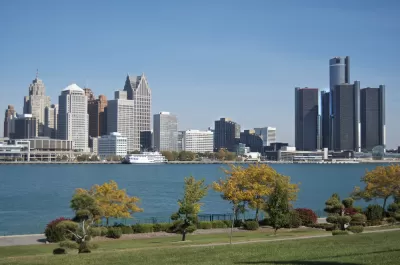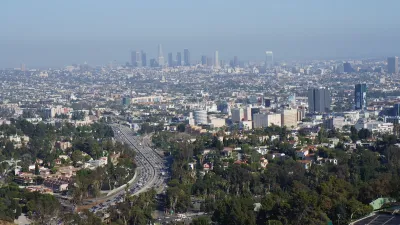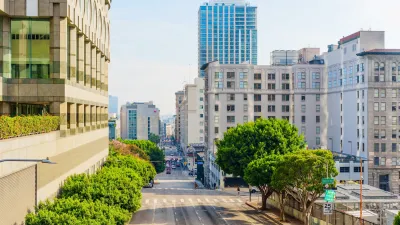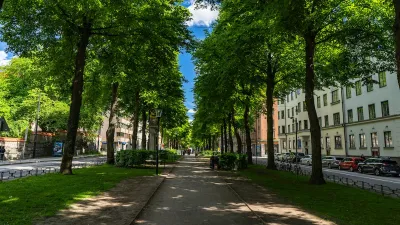A Detroit nonprofit has been planting trees in parts of the city with the lowest tree canopy.

Hadassah Patterson, writing in Next City, reports on a Detroit nonprofit that has been greening the city for over three decades. “The nonprofit has planted over 135,000 trees in the city since 1989, with an increasing focus on low-income or minority areas that were historically redlined. Trees currently cover nearly 23% of formerly redlined (grade D) neighborhoods compared to 43% of formerly greenlined (grade A) neighborhoods in 37 major U.S. cities.”
The article notes that “Greening of Detroit President Lionel Bradford says reforesting can help combat the higher emissions and hotter temperatures that come with urban areas.” According to Bradford, trees also soak up stormwater, preventing water backups that can foster mosquito infestations and other public health threats. “Greening of Detroit partners with the city to determine the best varieties of trees and locations for planting in neighborhoods and parks.”
The tree planting is just one part of Greening of Detroit’s mission. “In addition to employing community members and working with volunteers, Greening of Detroit runs two workforce development programs that are the backbone of their operations,” Patterson writes. “While Greening of Detroit has been working to increase funding streams from their own services, such as selling plants from its nursery, most of its funding comes from grants and donations from the government, foundations, corporations and individuals.”
FULL STORY: Detroit Nonprofit Is Turning Redlined Streets Green

Planetizen Federal Action Tracker
A weekly monitor of how Trump’s orders and actions are impacting planners and planning in America.

Maui's Vacation Rental Debate Turns Ugly
Verbal attacks, misinformation campaigns and fistfights plague a high-stakes debate to convert thousands of vacation rentals into long-term housing.

Restaurant Patios Were a Pandemic Win — Why Were They so Hard to Keep?
Social distancing requirements and changes in travel patterns prompted cities to pilot new uses for street and sidewalk space. Then it got complicated.

In California Battle of Housing vs. Environment, Housing Just Won
A new state law significantly limits the power of CEQA, an environmental review law that served as a powerful tool for blocking new development.

Boulder Eliminates Parking Minimums Citywide
Officials estimate the cost of building a single underground parking space at up to $100,000.

Orange County, Florida Adopts Largest US “Sprawl Repair” Code
The ‘Orange Code’ seeks to rectify decades of sprawl-inducing, car-oriented development.
Urban Design for Planners 1: Software Tools
This six-course series explores essential urban design concepts using open source software and equips planners with the tools they need to participate fully in the urban design process.
Planning for Universal Design
Learn the tools for implementing Universal Design in planning regulations.
Heyer Gruel & Associates PA
JM Goldson LLC
Custer County Colorado
City of Camden Redevelopment Agency
City of Astoria
Transportation Research & Education Center (TREC) at Portland State University
Jefferson Parish Government
Camden Redevelopment Agency
City of Claremont





























